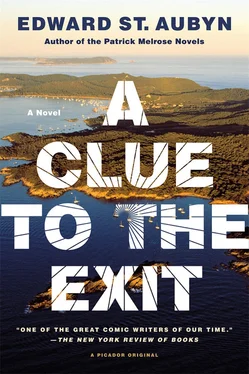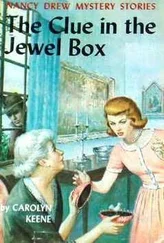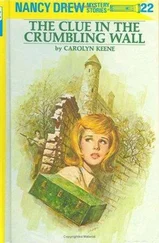‘You are right,’ said Jean-Paul, emphatically reopening his book. ‘The more I think about it, the less I can tell the difference between Proust and a chimpanzee.’
‘Oh, I think there’s a very marked difference. For a start, I’m sure that Proust wasn’t partial to PG Tips.’ Derek chuckled. ‘But the size of the difference is the very thing that makes one marvel at the power of natural selection.’
‘And what about the experience of pure consciousness?’ asked Jean-Paul, deciding to change his line of attack. ‘Awareness of awareness — what would be the evolutionary utility of that?’
‘If there is such a thing as pure consciousness — and I’m not much of a navel-gazer myself, so I won’t enter into the semantics of it — ’ said Derek with dismissive modesty, ‘it doesn’t require an evolutionary explanation. Consciousness had to exist before it could be moulded by natural selection, so, from that point of view, there is no task of explaining the existence of consciousness.’
‘But if the various types, of consciousness — visual, cognitive, et cetera — evolved for their survival value, they are essentially unlike awareness of awareness, which has no survival content whatever.’
‘Relaxation,’ said Derek, ‘there’s tremendous survival value in that. But, you know, in general, I like Chomsky’s distinction between problems and mysteries, between scientific questions which are amenable to a solution and those which no imaginable set of experiments could resolve. It seems to me that certain aspects of the attempt to create a science of consciousness fall into the mystery category — free will, what happens to consciousness after we die, that sort of thing. What’s nice from my perspective is that that makes complete evolutionary sense. Our minds didn’t evolve to solve those problems, any more than our eyes evolved to see ultraviolet light.’
Weary of being misunderstood, Jean-Paul was determined to bring the dialogue to an end. ‘So, if I’ve understood you correctly, evolutionary psychology has no need to explain the existence of consciousness and no possibility of explaining what is interesting about it. Really, we were completely lost before the invention of this discipline, huh?’
‘Oh dear, you really aren’t a fan,’ said Derek. ‘So, what’s your line of country?’
‘Reading,’ said Jean-Paul.
Crystal’s eyes were closed. She definitely wasn’t going to have another conversation. Tiredness was good. There was nothing to feed her curiosity, nothing to distract her from her anguish. She realized, with the thud of self-reproach reserved for the most blatant oversights and already accompanied by a shimmer of relief, that her whole journey to the conference was born of a desperate need for consolation. Her craving for answers to the questions posed so brutally by Peter’s coma had partially disguised itself as a passion for science. Now she was left with the naked longing to be reassured.
But could she afford to seek consolation from a future where death was the only certainty? When he was asked about the origins of the universe, the existence of God, the mind — body problem, and his survival after death, the Buddha had remained silent. What had drawn her to the dharma in the first place was the fact that it was a practice and not a faith: something to do, not something to believe. She recalled the allegory of the wounded man who refuses to have a poisoned arrow removed until he knows the name of the man who wounded him, whether the arrow was curved or barbed, shot by a crossbow or a longbow: his inquisitive pedantry is the equivalent of refusing to seek liberation without knowing whether the soul is dependent on the body.
As she remembered these things, her relationship with the unknown seemed to reverse: instead of being paralysed by ignorance, she was liberated by agnosticism. Released from a sales conference of systems and models, she returned to the vivid and discreet life of her own mind. She realized that she doubted everything except the sense of freedom that came from acknowledging a world in which things were neither unreal nor endowed with an independent reality, but flowing into one another like the air flowing in and out of her lungs. With this return to simplicity came relief, as if she had thrown open the windows of a hospital room. She was no longer tired, and when she opened her eyes she saw that the coach was already passing through west London.
By the time they arrived at Victoria coach station, Patrick could hardly wait to tell Crystal the happy news that the problem of consciousness was insoluble. A man called McGinn, sitting next to him on the coach, had explained the whole thing with exemplary clarity. Instead of using the mystery of consciousness to unlock a world far stranger than the one we thought we were inhabiting, McGinn used it to lock us into our constitutional limitations: not only was the problem unsolved, it never could be solved. Something we did not know and could not know provided an entirely naturalistic explanation for the arising of consciousness from insensate matter. Patrick, who had been toying with a materialism in which our ignorance was not intrinsic to our faculties but confined to our understanding of matter, immediately saw the advantages of the more radically pessimistic ‘cognitive closure’, namely that it allowed him to stop thinking about the problem. Instead of wondering whether he would live long enough to see science crack the code, he could now legitimately turn his back on the entire question. His life had been spent trying to stop thinking about one thing or another — sex, drugs, cruelty, snobbery, money. Consciousness just happened to be today’s relatively abstruse nightmare, the thing he couldn’t get off his mind, and McGinn’s analysis was the Betty Ford clinic he had been crying out for, a refuge for those who had been engaged in the compulsive futility of trying to find a common language with which to negotiate between the dictatorship of science and the anarchist guerrillas of introspection.
Why was the copula between the brain and the mind plunged in an obligatory darkness? He had to hang on to the argument while he shuffled down the crowded aisle of the coach, hang on for a few more minutes until he could explain it to Crystal. Then he would ask her to dinner and back to Ennismore Gardens for an in-depth seminar.
It would all be over soon. Whether he was a property dualist or a classical dualist, a mystic materialist or a silly old physicalist, whether he acknowledged that the mind was extended or he opted to be an out-and-out panpsychist: none of it mattered any more. No need to try to airlift causality to the seemingly calmer plane of functions or algorithms; no need to pretend that the mind which had produced computers suddenly turned out to be no more than the artefact it had wrought; no need to point out that the intelligence which appeared to belong to the computer was put there by the programmer not by the circuits; no need ever to mention Searle’s Chinese Room Argument again. He felt like a debutante who, grimacing sceptically in the mirror, has tried on every dress in her wardrobe, and then, with a sudden all-over rush of authenticity, decided to stay at home with a plate of baked beans. His own plate of baked beans was the thought of how ‘deplorably anthropocentric’ it would be to imagine that our cognitive closure could be translated into any kind of objective eeriness. Why should reality be constrained by our conceptual powers? All was well with the world, it operated according to the laws of nature; it just so happened that the law which described the cause of our most intimate and inevitable experience was utterly and for ever incomprehensible. He could live with that. No problem.
Читать дальше












